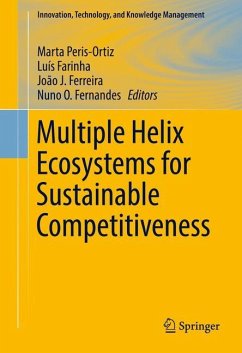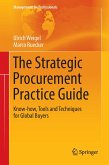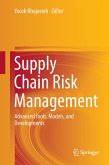This book discusses the main issues, challenges, opportunities, andtrends involving the interactions between academia, industry, government and society.Specifically, it aims to explore how these interactions enhance the ways inwhich companies deliver products and services in order to achieve sustainablecompetitiveness in the marketplace.
Sustainable competitiveness has been widely discussed by academics andpractitioners, considering the importance of protecting the environment whilesustaining the economic goals of organizations. The Quintuple Helix innovation modelis a framework for facilitating knowledge, innovation and sustainablecompetitive advantage. It embeds the Triple and the Quadruple Helix models byadding a fifth helix, the "natural environment." The Triple Helix model focuseson the university-industry-government triad, while the Quadruple adds civilsociety (the media- and culture-driven public) as a fourth helix.
The Quintuple Helix modelfacilitates research, public policy, andpractical application of sustainable competitiveness principles. Applying themost recent developments and theoretical insights of this model, thecontributors to this volume address such questions as: how do government,academia, industry and civil society actors interact for promoting sustainablecompetitiveness at the country (regional) level? How do these actors influencesustainable operations management at the company (business) level? In so doing,they shed new light on the dynamics of economic growth, sustainability andcompetitiveness.
Sustainable competitiveness has been widely discussed by academics andpractitioners, considering the importance of protecting the environment whilesustaining the economic goals of organizations. The Quintuple Helix innovation modelis a framework for facilitating knowledge, innovation and sustainablecompetitive advantage. It embeds the Triple and the Quadruple Helix models byadding a fifth helix, the "natural environment." The Triple Helix model focuseson the university-industry-government triad, while the Quadruple adds civilsociety (the media- and culture-driven public) as a fourth helix.
The Quintuple Helix modelfacilitates research, public policy, andpractical application of sustainable competitiveness principles. Applying themost recent developments and theoretical insights of this model, thecontributors to this volume address such questions as: how do government,academia, industry and civil society actors interact for promoting sustainablecompetitiveness at the country (regional) level? How do these actors influencesustainable operations management at the company (business) level? In so doing,they shed new light on the dynamics of economic growth, sustainability andcompetitiveness.








